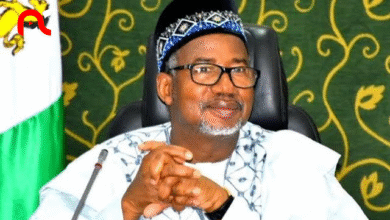Gov. Umar-Bago Unveils Ambitious 20-Year Development Masterplan for Bida’s Urban Renaissance

In a move that signals a decisive break from business-as-usual governance, Governor Mohammed Umar-Bago of Niger State has launched an audacious 20-year development masterplan aimed at transforming Bida, a historically significant town, into a modern economic and infrastructural powerhouse.
Branded under his administration’s “Urban Renewal Development Agenda,” the blueprint—unveiled at a stakeholder town hall in Bida—lays out both short-term and long-term urbanisation strategies intended to reposition the town as a thriving regional hub. Central to the plan is a dual-purpose approach: tackling urgent infrastructural decay while building a new growth corridor that balances economic ambition with cultural preservation.
Beyond Rhetoric: A Strategic Infrastructure Vision
At the heart of the initiative is the proposed 44-kilometre dual carriage Ring Road, a transport spine designed to redirect thousands of heavy-duty trailers that congest Bida’s inner roads daily. The road project, backed by a one-kilometre buffer zone on each side, is set to become the nucleus of a new satellite city, complete with housing layouts, business districts, and critical infrastructure, including a 100-megawatt solar energy farm.
“This is not just a road project—it is a strategic re-imagining of Bida’s urban and economic future,” Governor Umar-Bago stated. “Our long-term vision spans 20 years initially, with the capacity to scale into a 50-year integrated development framework that puts Bida on the national investment map.”
The Governor noted that over three million trailers pass through Bida annually, a volume that if properly managed, could generate ₦3 billion monthly in logistics-linked revenues—currently an untapped economic opportunity. “We cannot continue to allow this goldmine to be wasted,” he added.
Inclusive Development with a People-Centered Ethos
Umar-Bago was quick to address one of the most politically sensitive aspects of urban development—land acquisition and displacement fears. He assured residents that the government has no intent to forcefully seize ancestral lands or farmlands.
“Where properties fall within right-of-way zones, owners will receive full and fair compensation,” he stressed. “This is not about land grabbing; it’s about creating organised layouts that benefit everyone, including future generations.”
To reinforce transparency, the governor mandated continuous community engagement by the Ministry of Lands and Survey, the New Niger Development Project, and other key MDAs. He also issued a caution to residents about the rise of unscrupulous land speculators and grabbers, warning that the state will deal decisively with saboteurs.
Traditional Endorsement & Civic Mobilisation
The Emir of Bida and Chairman, Niger State Council of Traditional Rulers, Alhaji Yahaya Abubakar, gave his royal blessing to the initiative, calling it “timely, transformative, and necessary” in light of growing national economic pressures and infrastructure gaps.
“This is not just about Bida. It is about creating a sustainable future for generations unborn,” the Etsu Nupe remarked. “The ring road alone will save lives, decongest our town, and open up fresh opportunities for trade, tourism, and technology.”
He also called on residents to remain law-abiding, shun ethnic and religious divisions, and offer unwavering support through prayers and participation in the success of the initiative.
Policy Signals: Urban Development as Economic Stimulus
Political analysts view this development plan as a policy blueprint for state-led urban-industrial revival, an increasingly popular model in subnational governance across Africa. While federal attention remains stretched, proactive governors like Umar-Bago are exploring ways to unlock value from transport corridors, renewable energy, and real estate ecosystems.
“This is clearly a signal to both domestic and foreign investors that Niger State is ready for serious business,” said Prof. Muhammad Kuta-Yahaya, Pro-Chancellor of Abdulkadir Kure University, who attended the event alongside retired Maj.-Gen. Mohammed Garba and other stakeholders.
A Defining Moment for New Niger
Commissioner for Lands and Survey, Mrs. Maurice Magaji, called the occasion a “defining moment of shared commitment,” noting that the plan provides a clear framework for economic vibrancy, environmental resilience, and inclusive growth.
Indeed, with the right execution and citizen buy-in, the New Bida 20-Year Development Plan could become a case study in strategic subnational urban transformation—anchored in infrastructure, powered by innovation, and propelled by people.
BRANDECONOMY Insight: While many Nigerian towns grapple with unplanned expansion, Governor Umar-Bago’s phased urban planning model for Bida offers a refreshing example of foresight. If successfully implemented, it could reposition Niger State as a new frontier for logistics, renewable energy, and sustainable urban living—beyond Abuja’s shadows.











